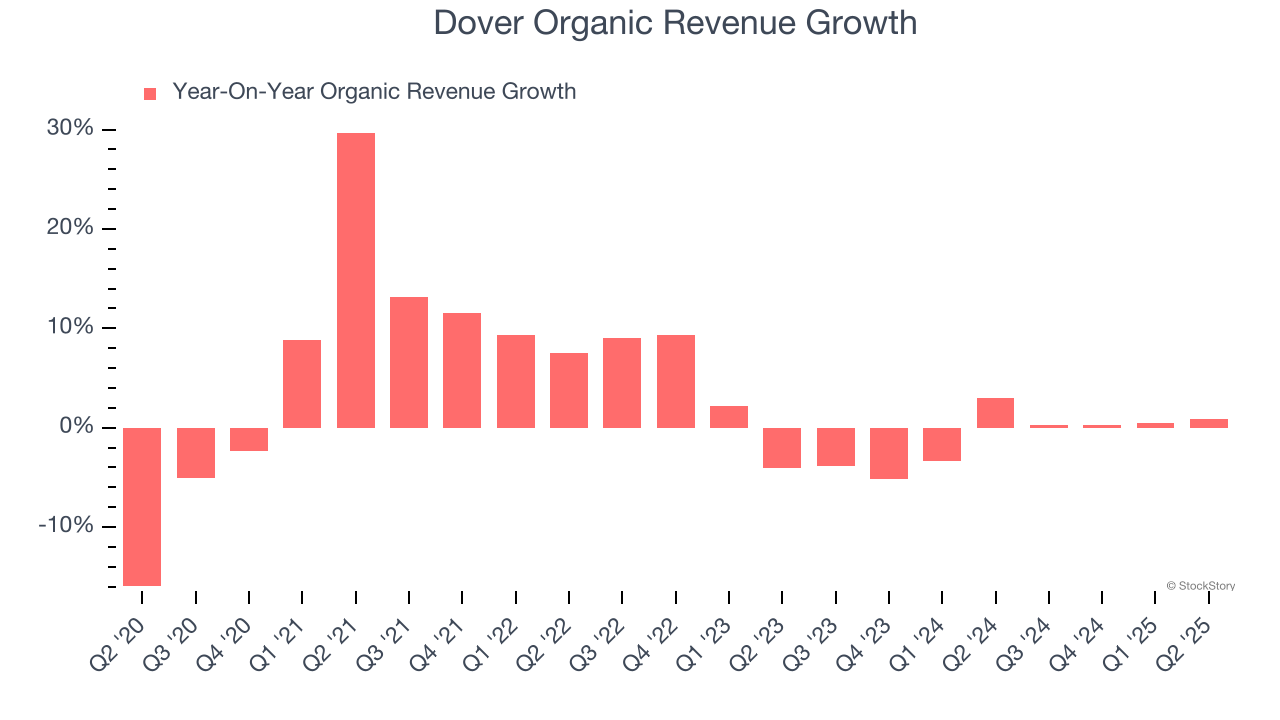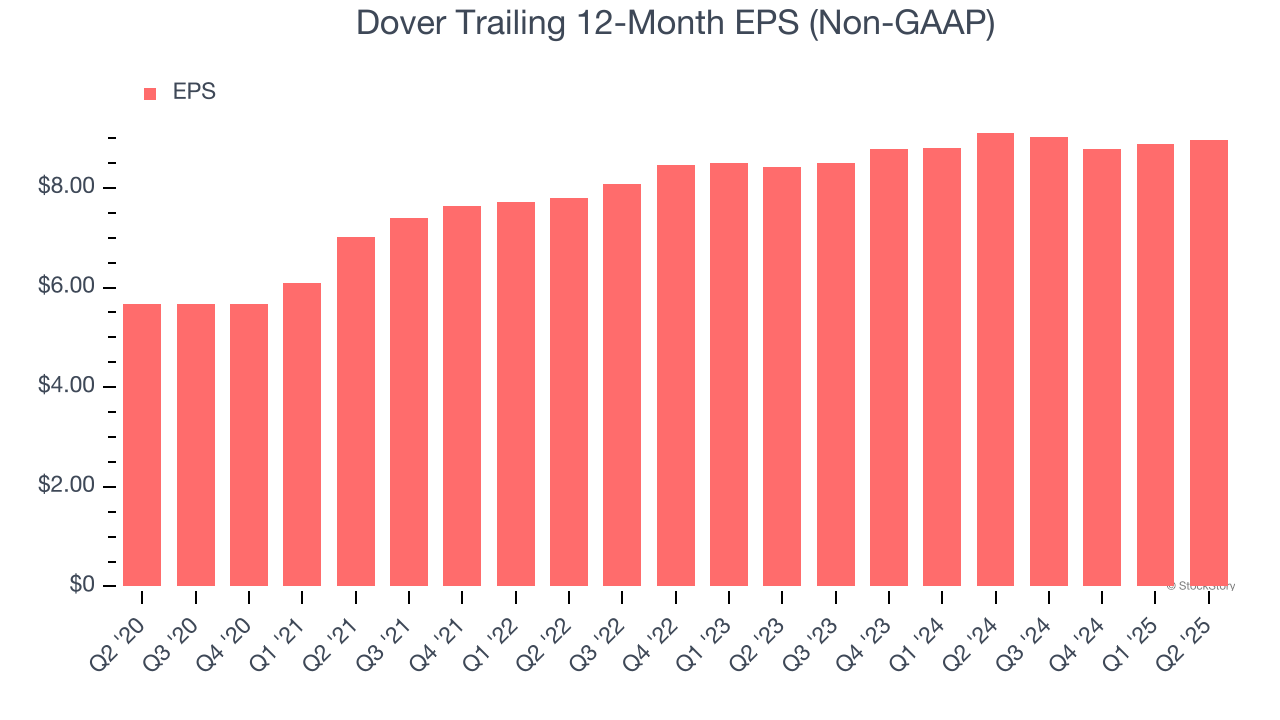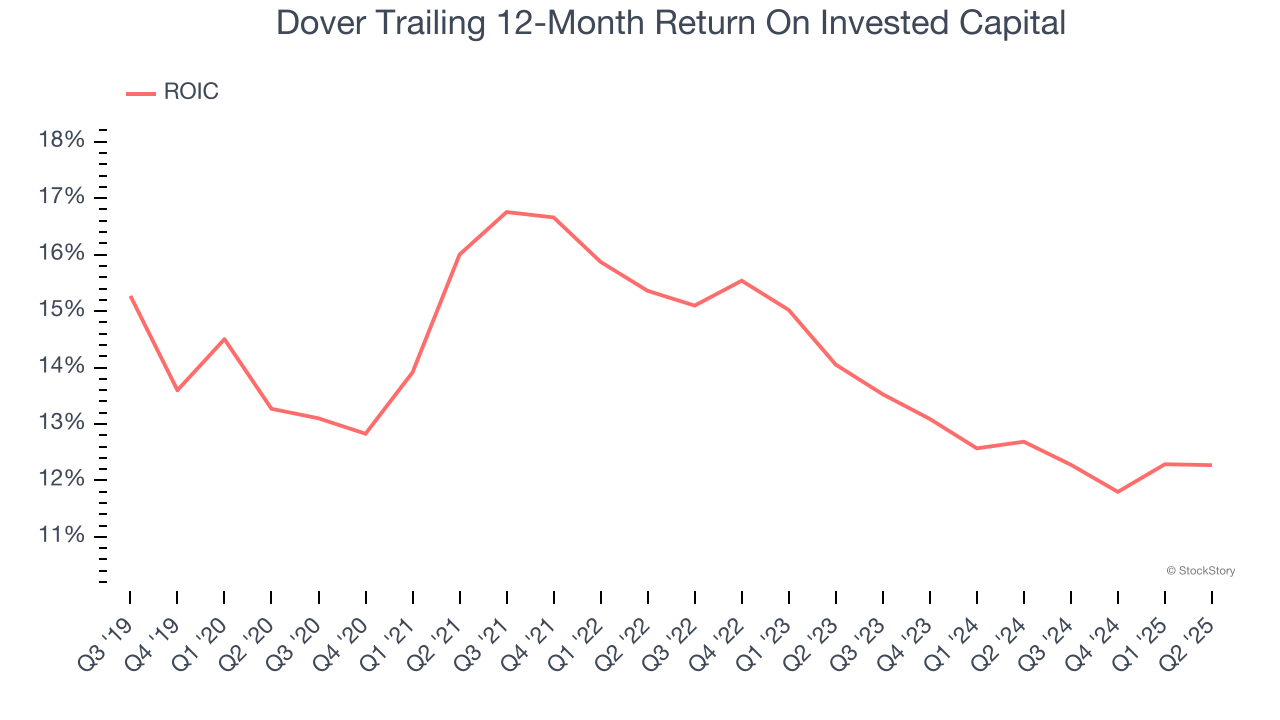
Over the last six months, Dover’s shares have sunk to $178.87, producing a disappointing 7.5% loss - a stark contrast to the S&P 500’s 10.5% gain. This was partly due to its softer quarterly results and may have investors wondering how to approach the situation.
Is now the time to buy Dover, or should you be careful about including it in your portfolio? Check out our in-depth research report to see what our analysts have to say, it’s free.
Why Do We Think Dover Will Underperform?
Even though the stock has become cheaper, we're cautious about Dover. Here are three reasons why DOV doesn't excite us and a stock we'd rather own.
1. Core Business Falling Behind as Demand Plateaus
Investors interested in General Industrial Machinery companies should track organic revenue in addition to reported revenue. This metric gives visibility into Dover’s core business because it excludes one-time events such as mergers, acquisitions, and divestitures along with foreign currency fluctuations - non-fundamental factors that can manipulate the income statement.
Over the last two years, Dover failed to grow its organic revenue. This performance was underwhelming and implies it may need to improve its products, pricing, or go-to-market strategy. It also suggests Dover might have to lean into acquisitions to accelerate growth, which isn’t ideal because M&A can be expensive and risky (integrations often disrupt focus). 
2. Recent EPS Growth Below Our Standards
Although long-term earnings trends give us the big picture, we like to analyze EPS over a shorter period to see if we are missing a change in the business.
Dover’s EPS grew at a weak 3.2% compounded annual growth rate over the last two years. On the bright side, this performance was higher than its 1.8% annualized revenue declines and tells us management adapted its cost structure in response to a challenging demand environment.

3. New Investments Fail to Bear Fruit as ROIC Declines
ROIC, or return on invested capital, is a metric showing how much operating profit a company generates relative to the money it has raised (debt and equity).
We like to invest in businesses with high returns, but the trend in a company’s ROIC is what often surprises the market and moves the stock price. Unfortunately, Dover’s ROIC averaged 3.2 percentage point decreases over the last few years. We like what management has done in the past, but its declining returns are perhaps a symptom of fewer profitable growth opportunities.

Final Judgment
We see the value of companies helping their customers, but in the case of Dover, we’re out. After the recent drawdown, the stock trades at 18.3× forward P/E (or $178.87 per share). At this valuation, there’s a lot of good news priced in - we think there are better stocks to buy right now. We’d suggest looking at an all-weather company that owns household favorite Taco Bell.
Stocks We Would Buy Instead of Dover
When Trump unveiled his aggressive tariff plan in April 2025, markets tanked as investors feared a full-blown trade war. But those who panicked and sold missed the subsequent rebound that’s already erased most losses.
Don’t let fear keep you from great opportunities and take a look at Top 5 Strong Momentum Stocks for this week. This is a curated list of our High Quality stocks that have generated a market-beating return of 183% over the last five years (as of March 31st 2025).
Stocks that made our list in 2020 include now familiar names such as Nvidia (+1,545% between March 2020 and March 2025) as well as under-the-radar businesses like the once-micro-cap company Kadant (+351% five-year return). Find your next big winner with StockStory today.
StockStory is growing and hiring equity analyst and marketing roles. Are you a 0 to 1 builder passionate about the markets and AI? See the open roles here.
